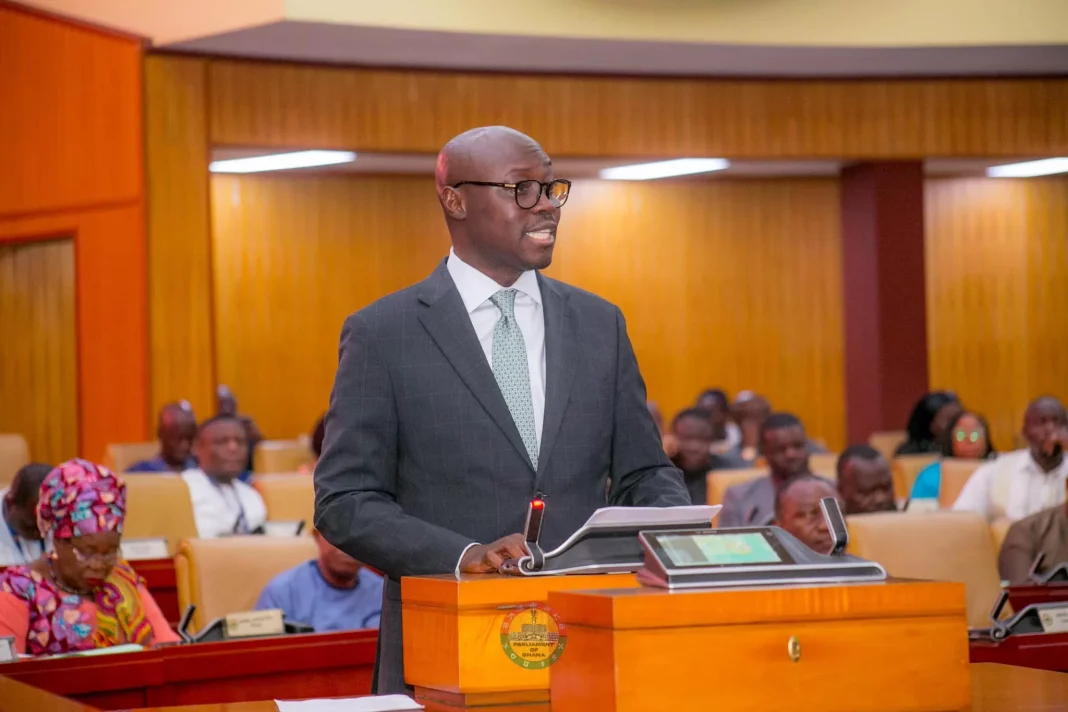As Finance Minister, Dr. Cassiel Ato Forson prepares to present the 2026 Budget and Economic Policy on Thursday, November 13, 2025, the private sector is showing cautious optimism about the country’s economic outlook heading into 2026, as macroeconomic indicators continue to improve.
According to the KPMG–UNDP 2026 Pre-Budget Survey Report, businesses are calling for “stability with impact” — a fiscal strategy that not only keeps the economy stable but also empowers local industries to grow, hire, and innovate.
The report notes that Ghana’s economy has made steady progress in stabilisation, with GDP growth reaching 6.3% in the second quarter of 2025 and inflation dropping to single digits as at October 2025. These gains, coupled with a relatively stable cedi, have strengthened business confidence compared to the previous year.
“Businesses recognise the government’s efforts to stabilise the economy, but they are calling for stronger measures to sustain growth and ease operational pressures,” KPMG said.
Economic Stability Boosts Confidence
KPMG attributes the improved business sentiment to better fiscal management, reduced inflation, and stronger export performance, which have helped to calm exchange rate volatility and restore predictability to the market.
The cedi’s stability, in particular, has been cited as a key factor in improving investor confidence and long-term business planning.
However, the survey also found that while macro indicators are moving in the right direction, the impact on the real economy remains limited. Businesses say access to affordable credit is still a major hurdle, with high interest rates and tight liquidity constraining expansion and hiring.
Growth Held Back by High Borrowing Costs
Despite improved stability, many firms report that financing costs remain unsustainably high, forcing them to delay new projects or scale back production.
They note that access to affordable and long-term financing remains the number one concern for businesses across Ghana. Firms are calling for the introduction of credit guarantee schemes, soft loans, and grants, particularly for micro, small, and medium-sized enterprises (MSMEs) that often struggle to secure funding.
More than 85% of respondents said that a matching-fund or grant scheme would help them invest in new technology and equipment to boost productivity.
Businesses also urged government to operationalise the Women’s Development Bank and establish a Domestic Credit Rating Agency to promote transparency, improve investor confidence, and expand lending to smaller firms.
On Energy and Infrastructure businesses lament that frequent tariff hikes and power supply disruptions continue to undermine business competitiveness. Many firms emphasised the need for a stable and affordable electricity tariff regime, greater investment in off-grid renewable energy solutions, and upgrades to transport and digital infrastructure to reduce logistics costs.
Tax policy reform also remains a top priority for the private sector. About 33% of businesses surveyed called for the reduction or restructuring of VAT and corporate taxes to ease cost pressures.
Companies also want faster VAT refunds, clearer tax calendars, and simplified digital compliance systems to improve transparency and predictability. Many respondents urged government to abolish outdated levies, such as the COVID-19 Levy, and to introduce targeted tax incentives for SMEs, green industries, and manufacturers to stimulate production and job creation.
The report further noted that as small and medium-sized enterprises (SMEs) continue to play a critical role in Ghana’s employment and innovation landscape. About 63% of respondents said that funding for workforce training and Technical and Vocational Education and Training (TVET) is crucial for building industry-relevant skills.
Firms also support the implementation of stronger “Made-in-Ghana” procurement policies and the expansion of apprenticeship programmes co-designed with industry partners to promote local content and entrepreneurship.
Sustainability is also gaining traction as a key driver of business competitiveness. Approximately 66% of businesses surveyed support sector-specific green incentives, including tax breaks for renewable energy projects and grants for eco-friendly production practices.
They want the 2026 Budget to prioritise climate-smart industrialisation, expand access to green financing, and promote circular economy initiatives that encourage responsible resource use and sustainable growth.
